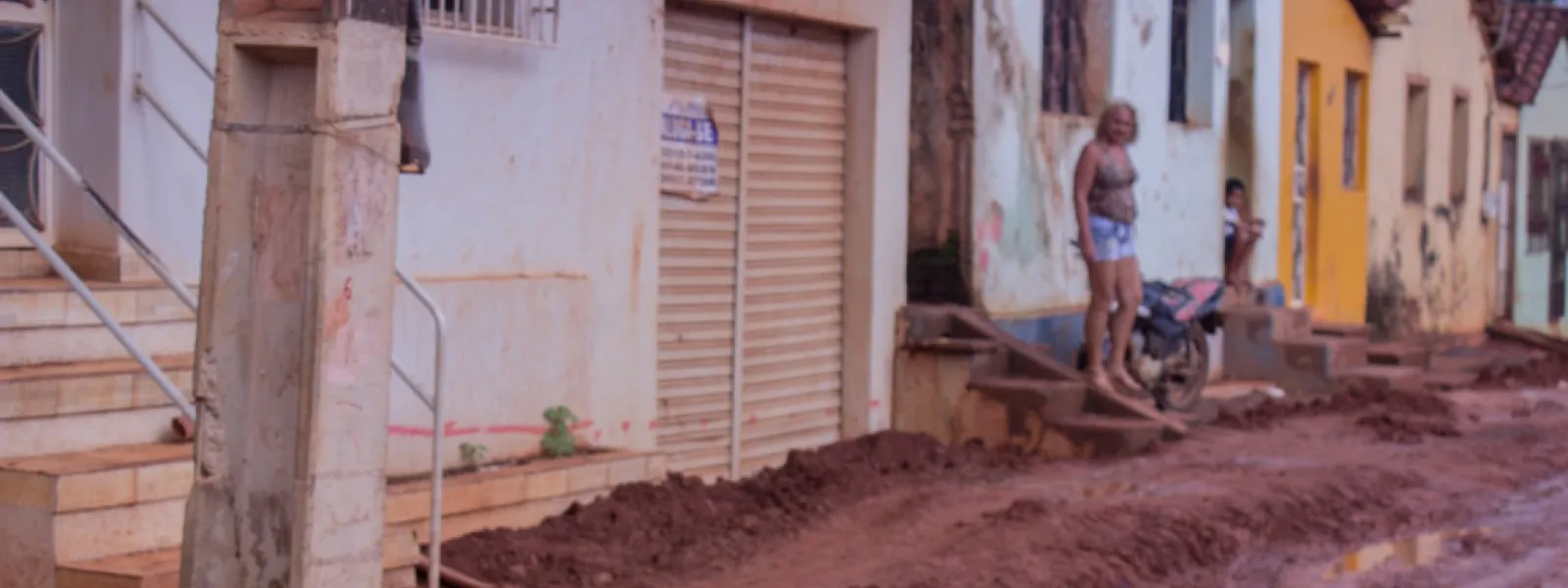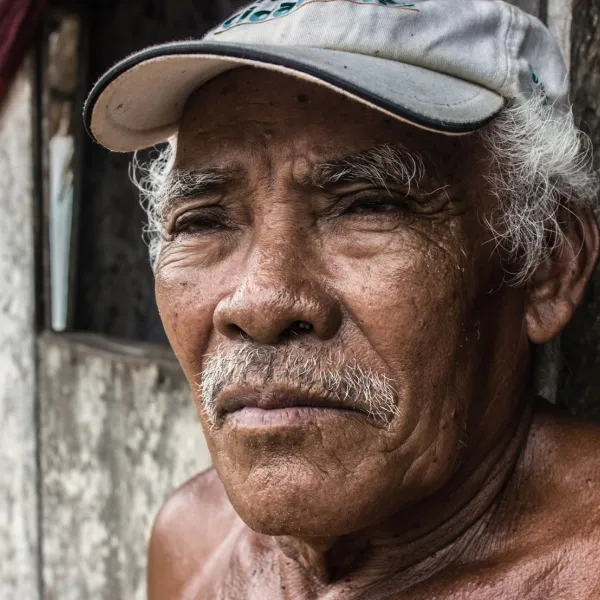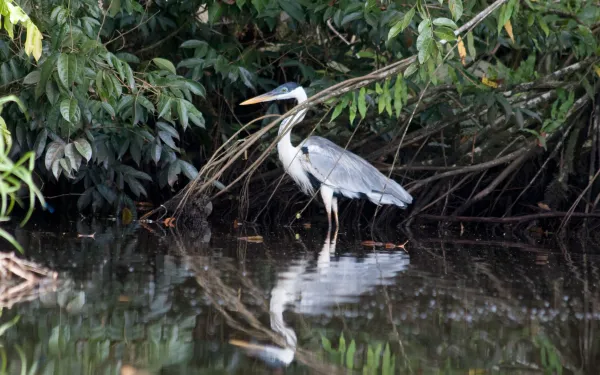
Project
Photo: Maíra Irigaray / Amazon WatchHolding Brazil accountable for the Belo Monte Dam
When fully operational, Belo Monte will be the third-largest dam in the world, constructed in one of the most important ecosystems on the planet: the Amazon rainforest. It sits on the Xingu River in Pará, a state in northern Brazil. The reservoir will cover 500 square kilometers of forest and farmland—an area the size of Chicago.
For the people of the Xingu, construction of Belo Monte has meant loss of access to water, food, housing, work and transportation. At least 20,000 people have been displaced.
The government and construction consortium began to construct the dam without first consulting the people of the region, many of whom are indigenous. They flouted international human rights law, which requires the free, prior and informed consent of affected indigenous communities. Brazil also failed to comply with precautionary measures issued by the Inter-American Human Rights Commission, which were intended to protect the life, health, and integrity of local communities.
Though Belo Monte began operations in May 2016, it is not yet operating at full capacity. In April 2016, a federal court suspended the dam's operating license because the consortium in charge did not complete basic sanitation works in Altamira, the city nearest to and most affected by the dam.
Partners:

Related projects

NGOs celebrate suspension of aerial spraying, advance in Colombian environmental law
They highlight the application of the precautionary principle in the resolution to suspend spraying, and pledge to stay alert to the threat posed by the potential manual use of glyphosate or its replacement with another chemical. Bogota, Colombia. Civil society organizations finally celebrate the temporary and preventive suspension of aerial spraying with glyphosate as an advance in the protection of public health and the right to a healthy environment in Colombia. They note that the National Environmental Licensing Agency (ANLA) applied the precautionary principle in the resolution, which ordered the suspension of a technique employed for more than two decades to eradicate coca and poppy crops considered of illicit use. On May 29, Colombia’s National Narcotics Council decided to suspend aerial spraying with glyphosate (Resolution 006). For the measure to be effective, ANLA had to suspend or revoke the Environmental Management Plan of the Program for Illicit Crop Eradication Using Aerial Spraying with Glyphosate (ICEPG). That suspension occurred on September 30 with Resolution 1214. The resolution is founded on the precautionary principle, and follows the recommendations of the Ministry of Health and the National Narcotics Council, both of which were based, in turn, on the opinion of the International Agency for Research on Cancer, which has concluded that glyphosate is a “probable carcinogen" to humans. The Interamerican Association for Environmental Defense (AIDA) considers the application of the precautionary principle an important advance for Colombian environmental law. “Today we can finally celebrate the suspension of the sprayings, after decades of evidence of harm to human health and the environment, and of the program’s inefficiency,” said Astrid Puentes Riaño, co-director of AIDA. For Yamile Salinas Abdala, investigator with the Institute for Studies of Development and Peace (INDEPAZ), “it’s necessary to draw attention to the power the Narcotics Council gave ANLA to resume spraying with glyphosate and employ the use of other herbicides, under certain conditions and through the prior consent of competent authorities, without specifying who those authorities are.” Pedro Arenas, coordinator of the Observatory of Crops and Growers Declared Illicit, said, “In the face of the decision of the President of the Republic and the National Narcotics Council, it was untenable to continue spraying with glyphosate. However, it’s inexplicable that the Director of the Colombian National Police wants to continue using it manually, and that the Ministry of Defense threatened to replace it with another substance to continue aerial spraying. For these reasons, we must remain vigilant.” In May, AIDA and INDEPAZ delivered more than 24,000 signatures to the Colombian Ministry of Justice on a petition launched through the platform Change.org to solicit an end to aerial spraying with glyphosate in Colombia. This month, 10 civil society organizations solicited the National Council for Pesticides and the National Narcotics Council to revoke the eradication program, and advised against the use of other herbicides. The organizations are the Washington Office on Latin America, the Latin America Working Group, AIDA, the Centro de Investigación y Educación Popular, Comisión Colombiana de Juristas, Grupo Semillas, Planeta Paz, Mamacoca, Red de Justicia Ambiental and Proceso de Comunidades Negras (PCN). That request reflected the decisions adopted by the Constitutional Court (Auto 073 of 2014) and the State Council (Rad. 2004-00227-01 of 2013), as well as the recommendations of the Advisory Committee for Drug Policy in the report “Guidelines for a New Approach to Drug Policy in Colombia,” published in May 2015.
Read more6 Things You Should Know About The Paris Climate Talks
Across Latin America, and the world, communities are facing the severe effects of a changing climate. As floods destroy ancestral homes, and droughts threaten livelihoods, the urgency with which world leaders must act is becoming increasingly apparent. It is in this critical global climate that world leaders will meet this December in Paris for a pivotal meeting of the United Nations Framework Convention for Climate Change (UNFCCC), also known as COP21. The conference is expected to produce a new global agreement on climate change, which we hope will set the stage for the transition to a low carbon, climate resilient economy. AIDA’s lead Climate Change attorney Andrea Rodríguez has been monitoring key elements of the ongoing climate negotiations and bringing information and analysis to policy makers and NGOs throughout the Americas. To prepare you for the barrage of news that will come out of COP21, we’ve asked Rodríguez some questions we thought you’d like to know the answers to: What is the COP21? The meeting in Paris will be the 21st yearly session of the Conference of Parties to the global climate change convention, also known as the UNFCCC. World leaders will convene in Paris with the goal of signing a new global agreement on climate change. The primary goal of the agreement will be to reduce greenhouse gas emissions and limit global temperature increase to 2° C above pre-industrial levels, so we can adapt to the new changes in climate. Why is the conference so important? Climate change is a global problem that requires global solutions. No matter what governments do, if they don’t work together and take collaborative actions, we are never going to succeed at providing an effective solution. That’s why a global space that coordinates what countries do to tackle the problem is crucial for finding a way forward. The global treaty on climate change has been established for more than 20 years. What we need from COP21 is further guidance to ensure its effective implementation. If we don’t provide clarity on exactly how we’re going to achieve reduced emissions in a timely manner, we’re putting at risk the future of the planet. What are the key issues AIDA is following? AIDA is following two key components in the development of the new climate accord: climate finance and the protection of human rights in climate related activities. Climate finance entails providing money for developing countries—which are generally the least responsible for and the most impacted by climate change—to implement climate related actions effectively. COP21 needs to provide clarity on the specifics of that support—when and how will it arrive, and where will the money come from? A baseline of $100 billion per year by 2020 has already been agreed upon. But how do we make sure that goal is reached, and that is continues to grow? And, once resources are distributed, there must be mechanisms in place to ensure those resources are used properly and effectively. AIDA is pushing governments to incorporate human rights protections into the agreement, because climate change directly affects human rights. We need to create a broad consciousness of the human rights dimensions of climate change. That includes incorporating specific language to ensure the protection of human rights in all climate actions. When governments or institutions are planning climate-focused projects, programs, plans and strategies, they must also think about how those projects will affect people and the realization of their human rights. What will the agreement mean for governments? Governments of the world need to start looking within. They must do an internal analysis to see what they have, and what they need, to ensure they can strategically implement the agreement. In order for a nation to commit to taking action, it must first make sure it has the institutional capacity and the means to succeed. What will it mean for the average person? The climate agreement is a political commitment, but it will certainly have repercussions at the local level. It will influence national policies. If leaders create an effective agreement, you will see your government shifting to low-emission, climate-resilient development. There will be better local regulations, and you will begin to see policy improvements, and eventually more climate resilient actions taken in your own communities. You will be less vulnerable to the effects of climate change. How can the average person engage on this issue? You can begin by demanding more of your government. Climate change is a political fight, and your voice can help influence outcomes. Learn what your government wants and what their expectations are—you can start now by familiarizing yourself with their INDC. Then get organized and push your government to take a more proactive stance. Familiarize yourself with climate finance, follow the negotiations, and help inform others by sharing our work. It is our duty as citizens to hold our governments responsible, and to do our part to protect and defend this beautiful planet as best we can.
Read moreAIDA urges Panamanian Supreme Court to protect water sources
Requested the annulment of a resolution that allows large projects like hydroelectric dams to use up to 90 percent of the water in rivers, lakes and other ecosystems. Panama City, Panama. The Interamerican Association for Environmental Defense (AIDA) has filed a legal brief supporting the lawsuit filed by the Centro de Incidencia Ambiental of Panama (CIAM) seeking annulment of Resolution No. AG-0691-2012, which was enacted by the former National Environmental Authority (ANAM), now the Ministry of Environment. This resolution, which establishes environmental flow, allows up to 90 percent of the water in rivers, lakes, and other natural sources to be used in large projects such as hydroelectric dams. Environmental flow is the minimum amount of water that a river or other channel must contain to maintain its ecological values—refuge for flora and fauna, landscape preservation, and dilution of pollutants, among others—and its social value, or use by communities. The ANAM resolution, annulment of which is sought in the CIAM lawsuit, sets this amount at only 10 percent of an unmodified average for all water bodies and allows the remainder to be used in large infrastructure projects. In its legal brief supporting the lawsuit, AIDA’s primary arguments highlight the Panamanian government’s international legal obligations to protect water resources and guarantee human rights. “We want the judges of the Third Chamber to nullify the resolution, with an understanding of the importance of Panama’s international obligations to maintain an environmental flow that supports the health of aquatic ecosystems and guarantees human rights,” said Haydée Rodríguez, AIDA attorney. AIDA seeks the annulment of the ANAM resolution because it violates the international principles and obligations undertaken by the Panamanian government to protect the biodiversity and rational use of its ecosystems, and to guarantee such human rights as access to water, a healthy environment, and way of life. AIDA also notes that the resolution lacks mechanisms for public participation in the establishment of environmental flow to incorporate the needs of all stakeholders.
Read more